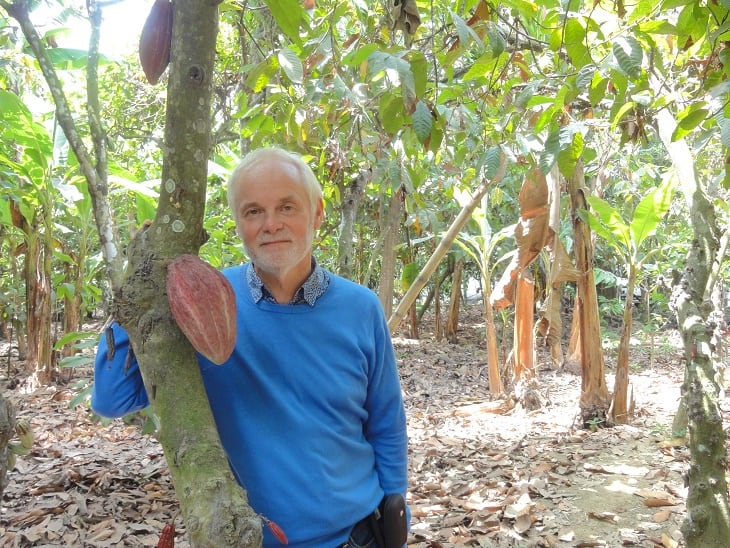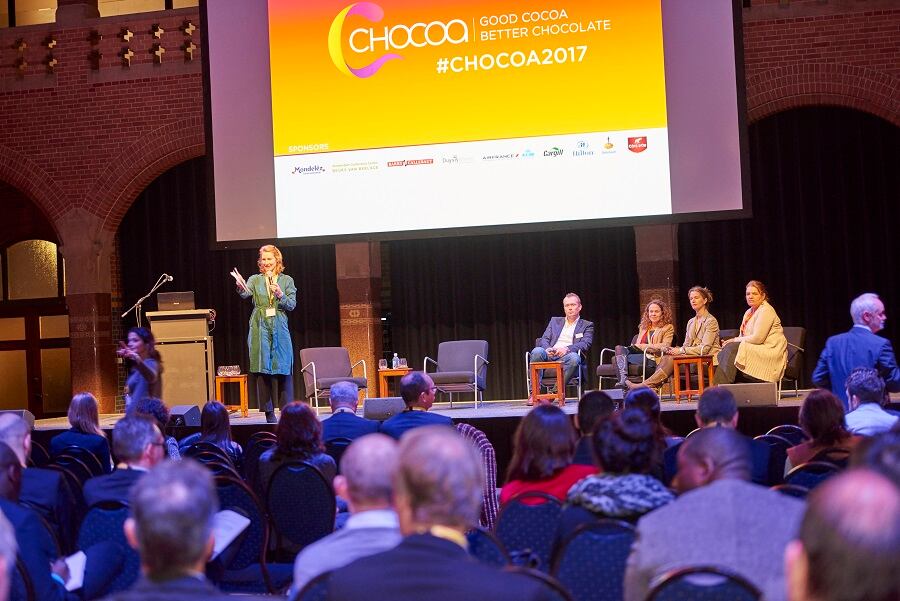Jack Steijn, co-founder of consultancy firm Equipoise and organizer of Chocoa, urged the industry to cooperate with other sectors to provide crop diversification packages for farmers, beyond existing productivity initiatives.
“In my view, diversification is the best long-term solution to the low prices - supporting the farmer so he can become an entrepreneur that is less dependent on cocoa.“

Better to diversify than to be highly productive in cocoa
According to Steijn, farmers can double their productivity by applying good agricultural practices that are part of most voluntary certification programs.
But he said this risks saturating the market with cocoa.
“It would be better for them [farmers] to reduce the surface available for cocoa and diversify into other cash crops.
“Oversupply will kill prices even more than today. This way, farmers reduce their dependence on cocoa and improve the resilience of their income," he said.
Steijn said industry should support farmers to find the most suitable new cash crops and help them bring these crops to market.
He added it was not the chocolate industry's sole responsibility, but said brands and cocoa processors could work together with other industries.
Crops for export
Crop diversification is not new and has been touted at cocoa conferences for years.
Steijn said most farmers have already diversified, but not necessarily with cash crops that can be sold outside of their region.
“The new crop should be adapted for the region and marketable beyond. For instance, food that can be sold in nearby cities or even exported to nearby countries,” said the Equipoise founder, who is also chair of the European Committee for Standardization (CEN) and the International Organization for Standardization (ISO) committee developing a joint standard for traceable and sustainable cocoa.
“A country like Côte d’Ivoire has a huge net import of agricultural products, among others, to serve in supermarkets in, for instance, Abidjan.
“The new crop should also contribute to spreading the revenues throughout the year, whereas in most cases, cocoa only brings in money twice a year,” Steijn continued.
He added reforestation could become part of the diversification plan, if stakeholders rewarded farmers for their carbon sequestration.
Chocoa: Beyond cocoa production

Steijn’s Chocoa event will focus on ‘Sustainability beyond cocoa production’. The sixth edition of Chocoa runs from February 21 to 25, 2018 in Amsterdam, Netherlands. The Chocoa conference on 23 February features speakers from Mars Wrigley Confectionery, Barry Callebaut, Mondelēz International and Cargill.
The event will include sessions on the impact of UTZ and Rainforest Alliance’s recent merger, the new ISO standard for sustainable and traceable cocoa, and will give a sneak preview of the next Cocoa Barometer, a report by a consortium of NGOs on the state of sustainable cocoa.
See HERE for the full program.
Transport and carbon emissions
Steijn also expects sustainability efforts will begin to look beyond the farm with carbon emissions from cocoa transportation to ports likely to come under the spotlight.
“More and more companies are pledging for sustainable, carbon neutral supply chains. They will have to have a look beyond the farm gate,” said the Chocoa organizer.
Steijn said it was within the industry’s interests to look further than the farm to ensure continuity of supply and to win market acceptance.
